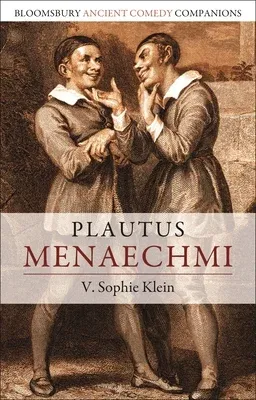V Sophie Klein
(Author)Plautus: MenaechmiPaperback, 7 April 2022

Qty
1
Turbo
Ships in 2 - 3 days
Only 4 left
Free Delivery
Cash on Delivery
15 Days
Free Returns
Secure Checkout

Part of Series
Bloomsbury Ancient Comedy Companions
Print Length
192 pages
Language
English
Publisher
Bloomsbury Academic
Date Published
7 Apr 2022
ISBN-10
135009272X
ISBN-13
9781350092723
Description
Product Details
Author:
Book Format:
Paperback
Country of Origin:
US
Date Published:
7 April 2022
Dimensions:
21.41 x
13.79 x
1.19 cm
Genre:
Ancient (To 499 A.D.)
ISBN-10:
135009272X
ISBN-13:
9781350092723
Language:
English
Location:
New York
Pages:
192
Publisher:
Weight:
249.48 gm